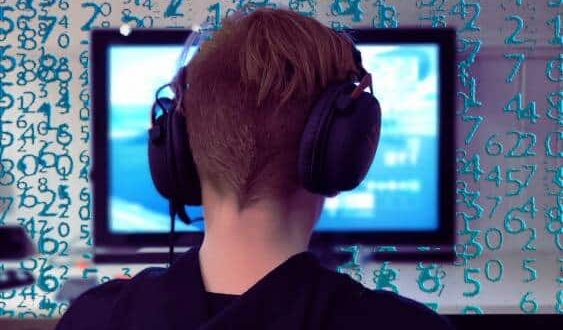
Representative Image
A combination of sports and cryptocurrencies is making waves, led by blockchain-based play-to-earn online games that are offering fans rewards in the form of cryptos.
Blockchain gaming is defying the crypto winter, with almost one million daily, unique active wallets in play in July globally, said a recent report by DappRadar, a global app store for decentralised applications.
The gaming-led global metaverse market is likely to reach $28 billion by 2028 from $510 million this year, growing at a compound annual growth rate of 95%, according to Valuates report.
Indian companies associated with Non-Fungible Tokens (NFTs), or digital assets, are also offering opportunities to their gaming communities to earn real money for engagement, and crypto investors are as well relying on NFTs to hold onto their places in a bear market.
Online gaming and blockchain – a shared database or ledger — make for a potent combination. Games like Cryptokitties, Axie Infinity, Decentraland and the Last Will have made strides among gamers in recent times.
Transparency
Blockchain games rely on blockchain technology to ensure everyone owns a copy of what they are playing, not just one entity. These games use the same technology as cryptocurrencies, including Bitcoin and Ethereum, to create true ownership.
Some of these games are built in the metaverse, a virtual-reality space in which users can interact with each other, while others are play-to-earn games encrypted by blockchain technology for transparency.
Such games have not only attracted users of Web3, as the new iteration of the Internet is known, but have intrigued Web2 users as well. Blockchain games have attracted users aged from 15 to 60 years, experts say.
“Web2 players have been investing their time and money on games without being able to unlock any meaningful value in the real world,” says Suvesh Malhotra, Chief Technology Officer (CTO) at Hike, which runs Rush Gaming Universe, a community of gamers and crypto enthusiasts.
“Meanwhile, blockchain acts as a digital notary. It finally allows players to own things online. That’s really powerful because once you own things, you can start unlocking value from them. And a decentralized digital notary kind of solves the problem of a central actor,” he added.
Mainstream adoption
Sunny Bhanot, co-founder and CTO of cricket NFT platform Rario, says blockchain gaming is becoming more viable for mainstream adoption in use cases and this trend is bound to grow in the future, not only because of the entertainment factor, but also the transparency this collaboration offers.
“One of the key drivers of attracting gamers to a gaming platform is the fairness of the platform. Biased platforms rarely attract serious users, especially in Real Money Games (RMG). Blockchain ensures every transaction on the platform is visible for the world to see and dissect, and build confidence among users about the fairness of the platform,” Bhanot said.
Amanjot Malhotra, country head of cryptocurrency platform Bitay, said that putting the leaderboards and reward system on blockchain makes everything transparent.
“Imagine if the game database is hacked, then all the information containing the progress by the users will be lost and then the user has to start again. This issue can be resolved by putting the data on a blockchain which will make this scenario almost impossible,” he said.
Challenges
To be sure, it does come with its own challenges. An understanding of the technology (private key, wallet), security (there have been many hacks of late), regulatory compliance (legality, taxes) and scale (speed, cost of transaction) are key among them, Bhanot said.
Rohan Rajguru, co-founder of the celebrity shoutout platform Hey!Hey!, says that once the challenges are overcome, blockchain gaming will become the next big thing.
More and more global and Indian sports stars have started associating with the crypto world in some way or the other. While cricket players like Rishab Pant, Smriti Mandhana, and Zaheer Khan, among others, have teamed up with NFT platforms, some have gone a step ahead and launched their own NFTs.
In fact, India’s first-ever sports NFT was launched by the cricketer Dinesh Karthik last year.
Some platforms help users win the NFTs of their favourite sportsperson, driving engagement through an emotional angle.
Kameshwaran Elangovan, co-founder and Chief Operating Officer at NFT marketplace GuardianLink, said: “Considering the emotions that get attached to NFT games and the exposure to technology, it will not be long before the collaboration becomes mainstream.”
“Just like how it’s so odd to say that your car has an airconditioner today, it would very soon be odd to tell that game assets are NFTs… because that would be the de facto standard,” he added.
Player in control
Suresh Joshi, co-founder of blockchain gaming platform Battle Infinity, believes that blockchain has the potential to put the player in control and to enable creators and players to monetize their efforts.
But more than this, Joshi added that blockchain frees the value behind the walled gardens of individual gaming franchises and can make in-game assets exchangeable on an interoperable basis.
“So not only can game asset value be realised by trading within games but different games could be bridged through the use of NFT technology – you could take your avatar from one game to another,” he said.
Arijit Mukherjee, founder of NFT marketplace Yunometa, says that the crypto industry adds immense value for tournaments, franchises and sports players worldwide as it consists of the same demographic of Gen Zs and millennials that these games attract.
“On the other hand, NFTs definitely get eyeballs when globally recognised players drop their collection for fans. Imagine the craziness to own Sachin Tendulkar’s bat and own its NFT from his Desert Storm innings in Sharjah or your favourite sports team’s digital avatar if it ever launches. The sheer hype and word-of-mouth will help to accelerate the growth of NFTs in India and the world,” he added.

No Comments Yet